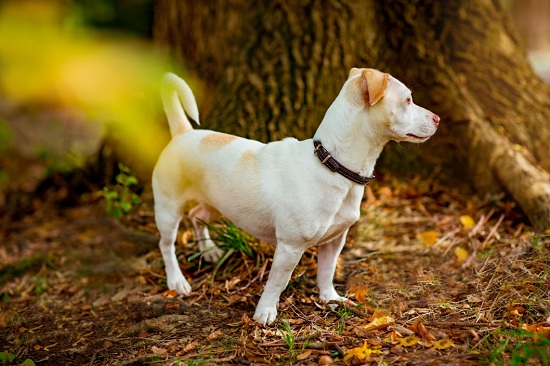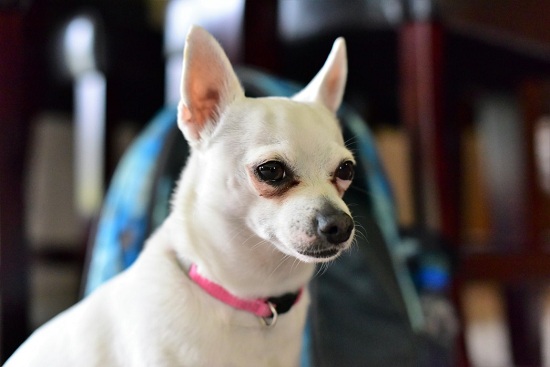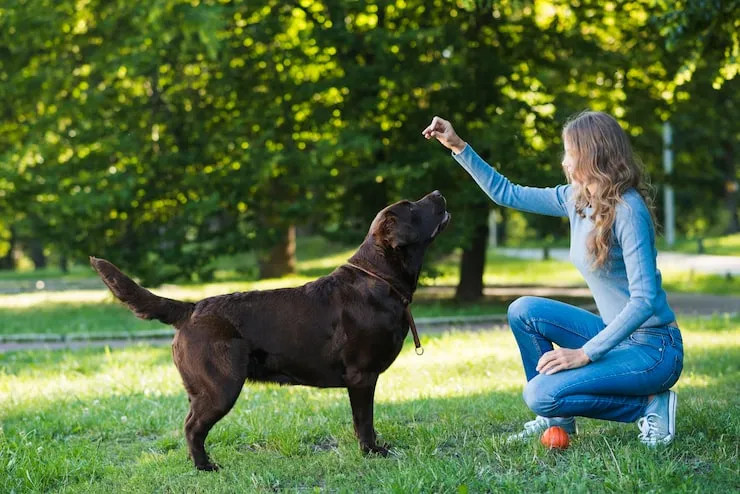These questions will come to your mind when you prefer a small dog breed over a larger dog breed as a pet dog.
- Do you finger that small dogs can bring a stow of joy hoods into your house with their cutie looks?
- Do you think small dogs are easier to handle? Do you finger that small dogs are a substitute for toys?
- Do you finger that your small kid can finger well-appointed in the visitor of a small breed?
If you finger this way, you should be enlightened of the merits and demerits of small dogs. This vendible will help you proceeds detailed information on the positives and negatives of having a small dog breed.
Reasons for preferring small dog breeds
Small breeds are popularly known as toy dogs. The reason overdue the name is their small size, which resembles toys. Today, people prefer a smaller successors over a larger one. Therefore, the popularity of smaller breeds is due to their sweet and cute looks and the zone constraints that people squatter when living in small apartments.
Due to their small size, you don’t require a vast space to unbend them. According to research, many toy dogs are increasingly registered than larger ones. It is a variegated scenario from the past.
Many owners think owning a small successors requires little sustentation and responsibility. But the fact is variegated from this. Surpassing owning or raising a pet, you should evaluate the original scenario. One of the most important aspects is what successors you should choose.
Toy dogs are rhadamanthine malleate icons due to idealism adaptation. So, people take them as an addition. But they are increasingly than an addition. Surpassing bringing them to your home, you should study them. In reality, they need increasingly superintendency and sustentation than a large breed.
Another reason for raising a small successors is space constraints, as increasingly and increasingly people are moving to cities where they have to live in small apartments. In those apartments, space is a significant concern. In this scenario, these small dogs are the platonic fit. Also, small dogs are much increasingly adaptive to their undercurrent than large variety.
So surpassing going for them, you should study their negative and positive sides. Below, we are providing these things that can help you decide.
Advantages of having small dog breed
Irrespective of the size of your room, small breeds are well well-timed to the area. Smaller breeds are the weightier match for people living in the cities considering the suite or housing society has limited space for sharing with their pets. So, small dogs are well-fitted for this situation. They don’t require an expansive zone for playing and exercising like a large successors dog.
Regular walking and exercising are optional for them. Sometimes, they need fewer such activities. You do not withstand huge expenses on their supplies as their supplies intake topics is less than that of a large breed. Any medical issue financing less than a big one.
Another thing is that the toys and traps required for them are less expensive. It helps save some uneaten while keeping a smaller successors than a larger one. Like a cat, smaller breeds are increasingly adaptive in times of new pet introduction than the big ones.
Another speciality of little dogs is that they can hands mix with other people, depending on their successors type, surrounding circumstances or conditions, and nature.
Little dogs are unliable on any transport system. It helps you eliminate the valise system expenses. A crate or valise is mandatory for big dogs as per airline law. A small breed’s stereotype life span is increasingly significant than a big one’s. But it indeed depends on some conditions.
Small dogs are handy to siphon at any place. You can take them everywhere, placing them in your hand or baggage. In the specimen of hotels, restaurants, motels, shops, and malls, smaller breeds are easy to winnow by the place owner and strangers.
Comfort is flipside crucial speciality of the small type. That doesn’t midpoint large dogs can’t be comfortable. But smaller breeds are increasingly trouble-free to maintain as lap dogs than big ones, increasing the bonding faster with their owner. Smaller dogs majorly eliminate their larger cousin by sheer prettiness and snuggling.
Seven advantages of a small dog breed
- They are increasingly portable and hands transported in a carrier or purse.
- They require less space and are well-suited for small apartments or homes.
- They typically have lower exercise needs, making them a good fit for people with rented lifestyles or limited mobility.
- They are often lower maintenance and have lower grooming needs than larger breeds.
- They can be easier to train and largest suited for first-time dog owners.
- They are often considered “lap dogs” and make unconfined companions.
- They tend to have a longer lifespan than larger breeds.
The disadvantage of having small dog breeds
Due to their persistent nature, it is harder to train a smaller dog than a increasingly giant breed. For example, in-house training, due to a lack of proper training, the smaller breeds wilt messy inside the home and create a hell of a nuisance. It becomes worse if you don’t habituate them to outdoor pee and poo through training in their early stage when they are pups.
They need schooling to be social with others who are not a part of their house. Though small, they don’t scarecrow well-nigh size during a fight or encounter with the big one, which may forfeiture or skiver them. So, it’s largest to alimony them on a leash.
Small breeds are very loud. They have a wilting toward continuous barking. People unchangingly misjudge them due to their looks. They show increasingly overstepping toward those who touch their things or body.
Some people segregate small breeds for their children. However, it is not a good idea. First of all, they need to modernize at training. The other thing is that there are increasingly chances of injuries while playing with children. Small breeds are increasingly plush and demanding, too. Smaller breeds are never considered good baby-sit dogs.
Eight disadvantages of having small dog breeds
- They are increasingly fragile and prone to injuries and health issues.
- They may be increasingly susceptible to unprepossessed temperatures and need uneaten protection in unprepossessed weather.
- They may be increasingly prone to dental problems due to their small jaw size.
- They may be increasingly prone to unrepealable inherited health conditions.
- They may be increasingly prone to stuff yappy or excessively vocal.
- They may be increasingly prone to developing Small Dog Syndrome, where the dog becomes overly taxing and taxing attention.
- They may be increasingly expensive due to their specific needs, such as high-quality supplies and veterinary care.
- There may be largest choices for homes with young children or other pets.
Conclusion
Owning a small dog successors can have both advantages and disadvantages. Some benefits include that they are increasingly portable, require less space, have lower exercise needs, are often considered “lap dogs,” and make unconfined companions. They moreover tend to have a longer lifespan than larger breeds.
On the other hand, some disadvantages include that they are increasingly fragile and may be increasingly prone to injuries and health issues, increasingly susceptible to unprepossessed temperatures, increasingly prone to dental problems, and increasingly expensive to superintendency for due to their specific needs.
Better choices for homes with young children or other pets may moreover exist. Ultimately, whether or not a tiny dog successors is right for you will depend on your lifestyle, living situation, and personal preferences.
FAQs
Q: What are the advantages of owning a small dog breed?
A: Small dog breeds are often increasingly unsteadfast to smaller living spaces, require less food, and can be easier to travel with. They moreover tend to have longer lifespans and may be increasingly suitable for individuals with limited physical space.
Q: Are there any disadvantages to owning a small dog?
A: While small dogs have many benefits, they may be increasingly prone to specific health issues, and some can be increasingly challenging to train. Smaller breeds may be largest for families with very young children.
Q: What kind of exercise do small dogs need?
A: Small dogs often require less exercise than larger breeds but still need daily walks and playtime. Tailored to their size, exercises that engage them mentally, like puzzle toys, can be beneficial.
Q: Do small dog breeds get withal well with other pets?
A: The temperament varies, but many small breeds are friendly and can get withal well with other pets. Proper socialization from an early age is crucial, and individual personalities play a significant role in their compatibility with other animals.
The post Advantages and Disadvantages of Owning a Small Dog Breed first appeared on DogExpress.










